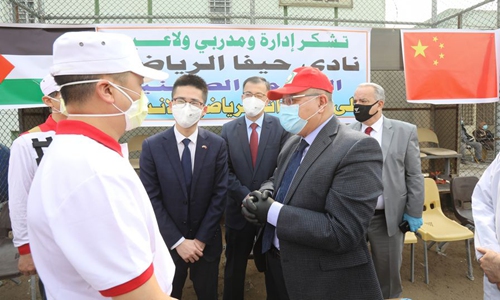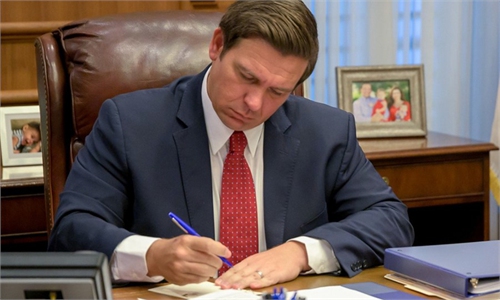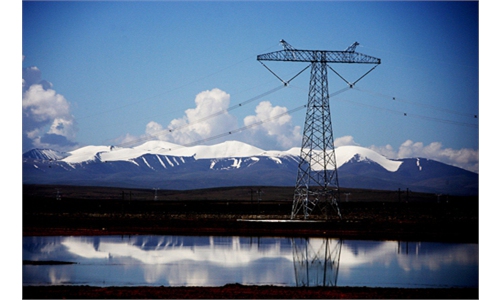
A Chinese expert team delivers medical aid to Iraq on March 16, 2020, in Baghdad, Iraq. (Xinhua Photo)
The Iraqi government has announced the signing on Wednesday of a contract with Power Construction Corp of China (Power China) to build solar power plants in Iraq with a total designed capacity of 2,000 megawatts. The announcement was made on Twitter.
The tweet said that the project will help generate 750 megawatts of electricity after the first phase is completed.
Iraq's main power grid struggles with daily outages of up to several hours. With temperatures often reaching 50 C during the summer, power shortages would worsen as households increase the use of air conditioning.
In June 2018, Power China began work on a 730-megawatt power plant in Rumaila, Iraq, its first engineering procurement construction project in Iraq, with investment by the Iraqi Ministry of Electricity. Once completed, it will relieve most of the electricity pressure in Basra, the second-largest city in Iraq.
Iraq was one of the first Arab countries to join the Belt and Road Initiative (BRI). As part of the BRI framework, Chinese companies have contributed to the reconstruction in Iraq, including oil fields, power plants and water treatment plants.
Wasit Power Plant, the largest thermal power plant in Iraq, was built and is now operated by the Shanghai Electric Group, with generation capacity equivalent to 20 percent of the Iraqi national grid.
The early power plant in Rumaila Oilfield, built by China Petroleum Engineering and Construction Corp, provides power for more than 1 million households annually.
Wang Zesheng, a researcher from the China Institute of International Studies, told the Global Times that China has played a vital role in the reconstruction of Iraq.
China has cooperated with Iraq government, mainly in the fields of energy and oil, which has contributed to the restoration of people's livelihoods and the stability of Iraq's political situation, with wider implications for the stability of the Gulf region.
Wang added that such cooperation is conducive to solving energy problems in Iraq, and it is a good reference for rebuilding countries like Afghanistan, after the political situation there stabilizes.
Global Times



